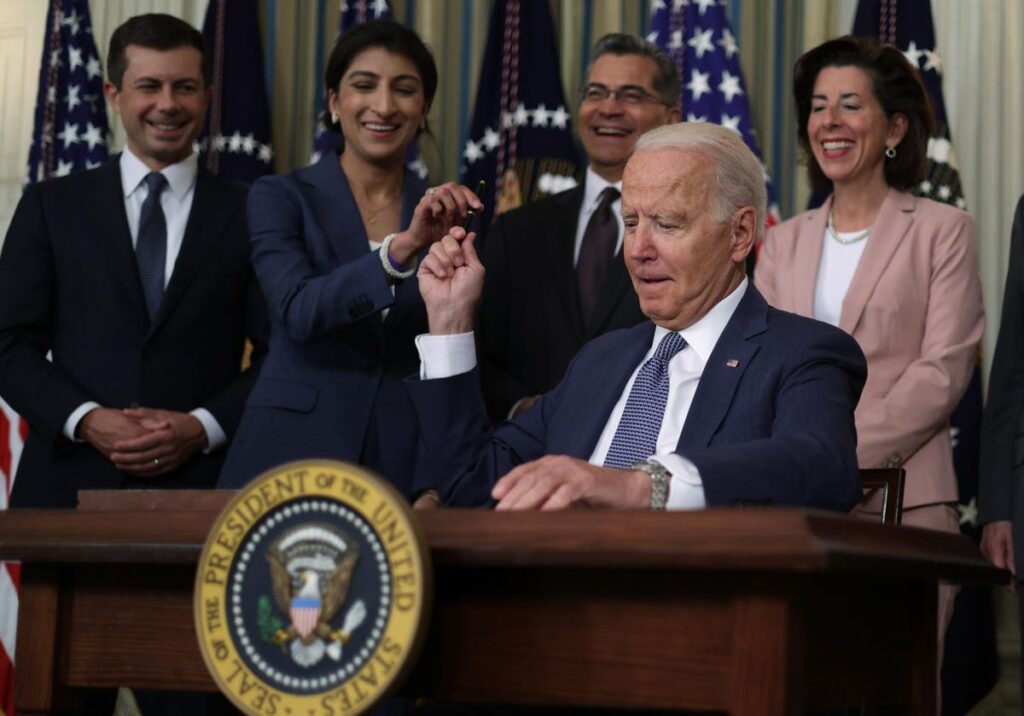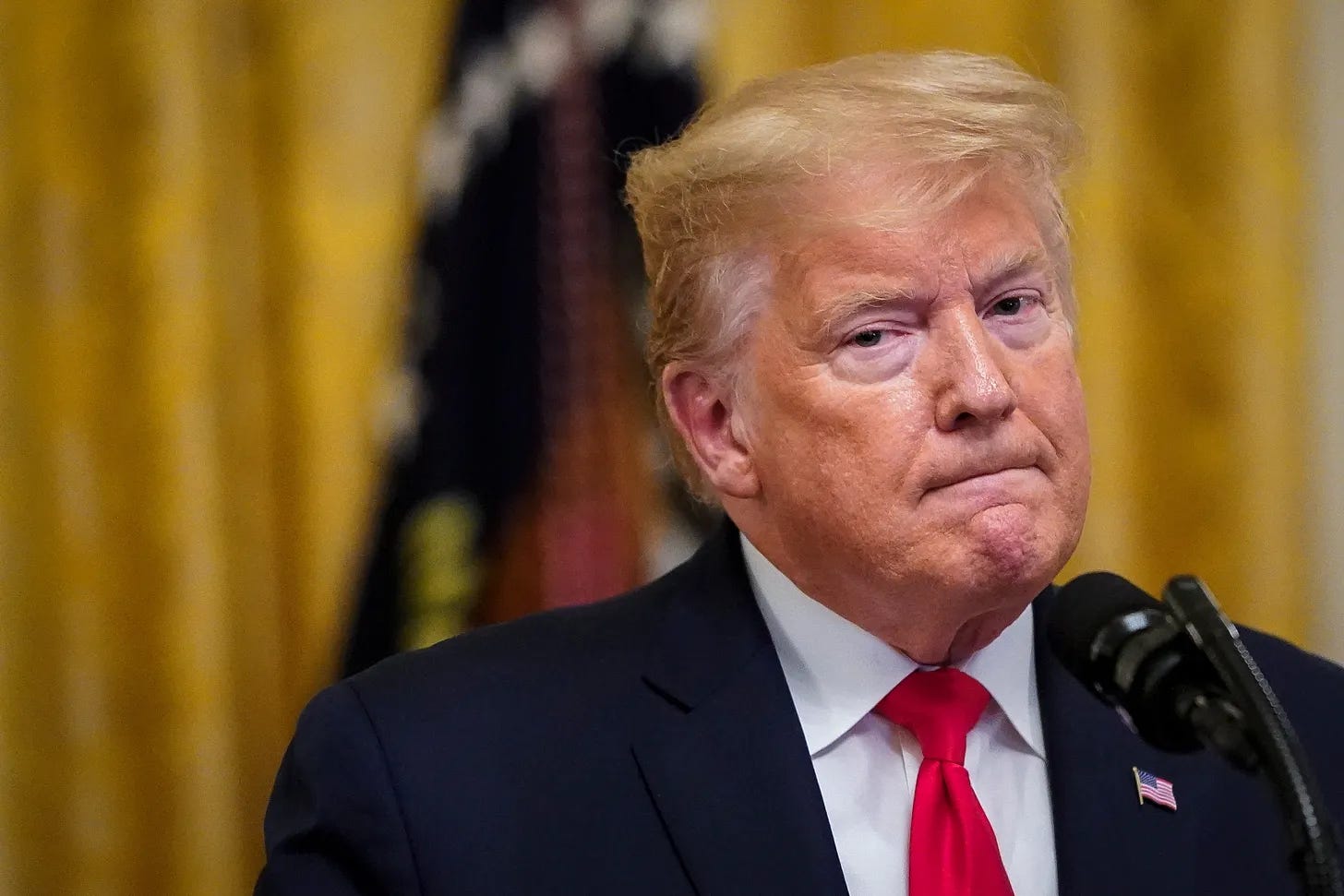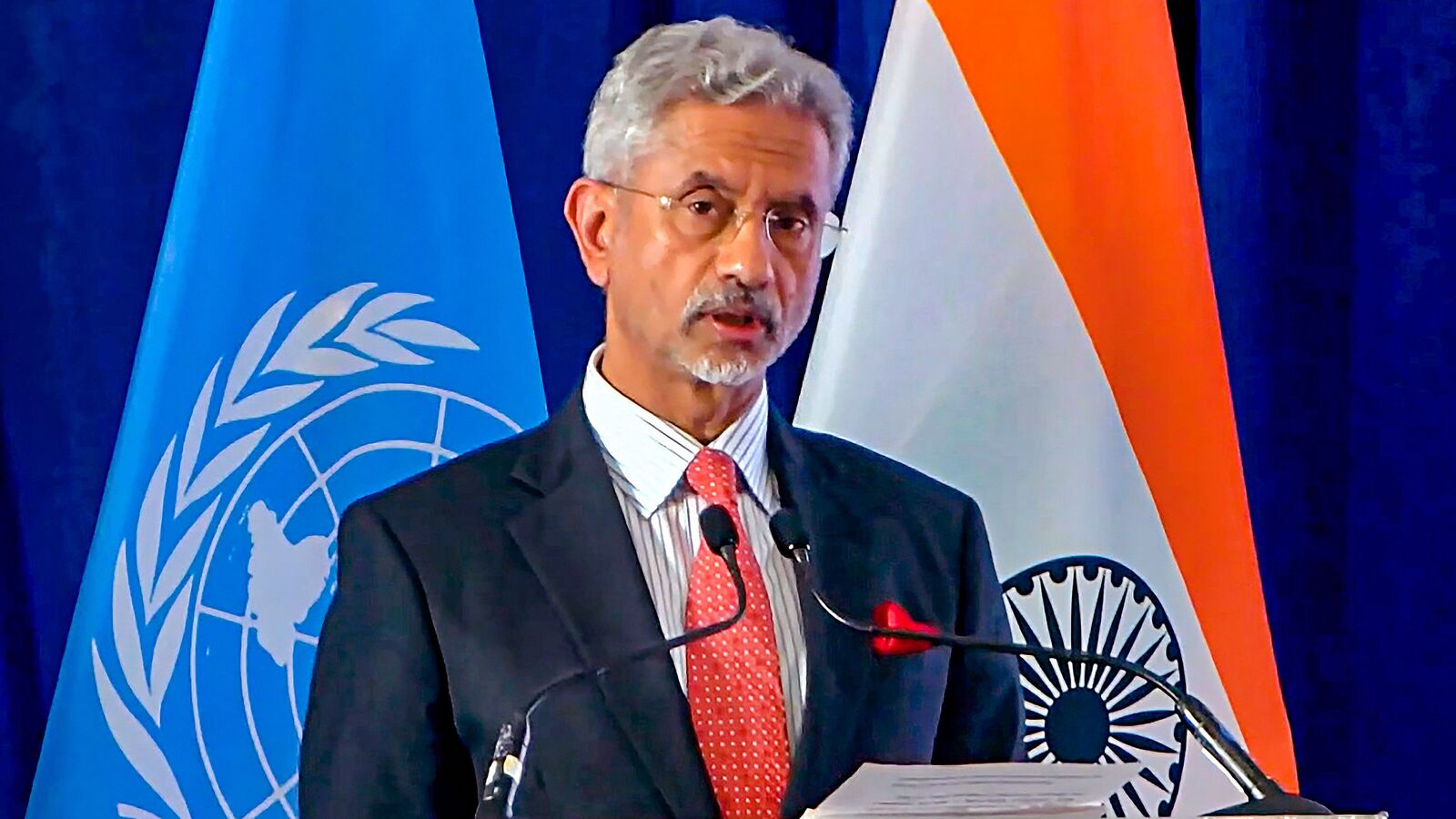Overall, Americans would do poorer as a result. James Czerniawski, an analyst with Americans for Prosperity, discusses why he thinks it would be detrimental to consumers.

Biden vs. Amazon: Is Amazon a Monopoly that Needs to be Broken Up?
“Washington rumors have circulated for years. Now it’s official: the Federal Trade Commission is suing Amazon for alleged anti-competitive business practices. Although the Biden Administration contends Amazon holds a monopoly controlling the prices you pay for its goods and services, others say Amazon often acts as a third party advertising and shipping other companies’ products. Here to explain from Washington, DC, is senior Tech and Innovation policy analyst at Americans for Prosperity, Young Voices commentator Jame Chernowski. Is this just the first step in breaking up the Amazon monopoly? What do you think would be good for consumers or bad if they did that?
I think that it would result in a Warsaw situation for many Americans because what this seemingly is, is the FTC embracing bionomics, which frankly makes no sense. His economy has resulted in Americans paying over ten thousand dollars more, and I think that at the end of the day, Amazon actually is a good thing for consumers. So if we were to go and have Amazon break up as a result of the Amazon Monopoly antitrust lawsuit from the Federal Trade Commission, I think that would leave Americans worse off all across the board.
Well, how is it James generally? You break up monopolies because they have a monopoly on the pricing, yeah, yeah. Well, the reality is that Amazon’s not a monopoly. All consumers have lots of alternatives available to them, especially in this digital economy. I do a lot of niche shopping online, and it doesn’t always go through Amazon. So sometimes I like custom mugs or other kinds of little gifts and candies that I like to get to my friends, and I’m not always going to find that on Amazon. Consumers are very well aware of finding these alternatives. Actually, one of the fastest-growing people in the e-commerce space right now is Walmart, so let’s not pretend that it’s just simply Amazon dominating this ecosystem. It’s just not true.
Well, it seems the president here is taking on Bezos, Jeff Bezos, one of the wealthiest men in the world who also owns, by the way, the Washington Post. And with an impeachment investigation underway in the house, the indictment of his son, is Biden playing with fire here? Because the Post could make or break him. I know you’re too young, but I’m sure you know about your history, Nixon Watergate, The Washington Post. Yeah, I think that at the end of the day, that if President Biden and his Federal Trade Commission want to go and make it more expensive for Americans to go and live in this economy that he’s trying to create, that’s on his prerogative. And I think that it’s to his detriment. Americans are not okay with the cost of living right now. It’s their number one issue in the economy, and if you want to go and break up Amazon, one of the few services that are actually keeping prices lower, I don’t know what to tell you. That’s just asking for a lot of pain when you’re coming into a re-election year.
Last May, the FTC charged Amazon with violating privacy laws. Remember that one for archiving The Alexa voice messages of children. The FTC sued Amazon in June of last year. It recently released new details. James, the FTC actually named three Amazon executives as defendants. Exactly what did they do that the FTC felt was harmful to 200 million Amazon Prime subscribers, and what are those new unredacted details?
Yeah, that’s a great question, and ultimately, what’s happening here is that the FTC is alleging that these particular executives knew that the practices that Amazon was doing were resulting in this harm to consumers. Therefore, they felt that it rose to the level of including them in this lawsuit against Amazon. That’s really what the crux of this case is.
Well, what were they doing? What was Amazon doing that was harmful? Well, again, what they were alleging is that Amazon was engaging in using dark patterns to get consumers to sign up for Amazon Prime. And then when they realized after the fact that they had this charge showing up on their account, that it was more difficult for them to go and actually cancel their Prime subscription. However, it is not always the case. I mean, it’s actually really easy to cancel your Prime subscription. It actually takes as little as six clicks, according to my friend Patrick Hedger. And on the flip side, if you want to go and submit a comment to the Federal Trade Commission, it would take a lot more clicks to go and get that done, and it’s nowhere near as transparent. So again, I think that this is just the FTC going and chasing against Amazon because it’s a big technology company, and that’s what generates the headlines.
Well, Amazon feels it was wrong for the FTC to name the three executives in that civil suit. And the company also says it’s always made it clear and simple for people to sign up or cancel Prime. So just how easy or hard is it? What have you found?
I found that it’s extremely easy. I’ve been using Prime for years, though. And this is another point that Amazon brought up, is that even if they accidentally signed up for Prime, the chances were more likely than not that they had actually liked the service so much that they continued using it anyway. And that’s what I found for over years of using Amazon Services. I’ve been going and having it since I was in college. It was good for me to go and get free shipping and have access to Prime Video and some music. So there are a lot of benefits that are available to consumers. It’s not like there’s just this magnificent harm that the FTC is trying to allege here.
Similar Posts
- FTC sues Amazon for illegally maintaining monopoly power
- US regulator files anti-trust lawsuit against online retailer Amazon | US trade watchdog sues Amazon
- European Union files antitrust charges against Amazon
- Amazon & Google Antitrust Cases Highlight “Newfound Vigor” to Fight Monopolies
- The government’s Amazon lawsuit explained | Amazon Anti-trust Lawsuit
- Why the US government and 17 states are suing Amazon?
- California files anti-trust lawsuit against Amazon
-

Top 7 Reasons Russian Girls Move to Dubai in 2026 – Russian Expats, Lifestyle & Career Guide
-

British PM Sunak ban cigarettes to make UK smoke-free for future generations
-

Trump had no defenses: Ex-Trump White House lawyer Ty Cobb on latest ruling
-

EAM Jaishankar’s Point-by-Point Rebuttal to Canadian PM Trudeau’s Charges!

